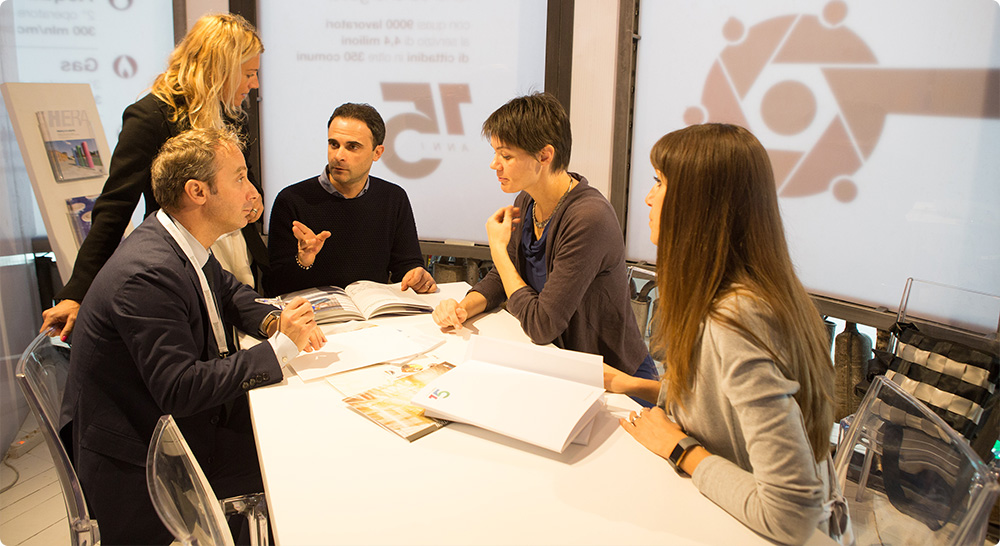Innovation and Change
Innovation and Change management
- Group
- Working at Hera Group
- HerAcademy
- Employees
- Innovation and Change

Our HR strategy places the individual at the centre, with the aim of making the most of uniqueness and diversity by finding the right balance between tradition and innovation; this is why we have adopted original and innovative models for the management of knowledge and organisational learning processes, specifically:
The transfer of know-how between employees and the exchange of best practices is fundamental for increasing knowledge. With this in mind, in 2004 Hera launched the Scuola dei Mestieri (School of Trades), aimed at improving the characteristic technical and operational competencies of the Group, with the goal of increasing awareness of professional standards of behaviour and the transferability of skills from operator to operator. One of the main tools of the School of Trades is the publication of the “Trades workbooks” (15 to date), aimed at mapping and consolidating within a methodological framework the tacit knowledge related to the Group’s typical trades, so as to be able to implement the processes of learning and knowledgeable dissemination between operators.
For an individual, learning a trade involves building personal “reasoning maps”, based on direct experience and the acquisition of that already acquired by his or her colleagues. This is the most difficult part, because it requires “learning how to think”, instead of “learning and that’s it”. The key objective of the School of Trades is to promote the creation and transfer of these cognitive resources.
The Comunità di Pratica (Communities of Practice) are spontaneous and self-governed social groups that produce and share methods of action and practical knowledge among their members, through conduct inspired by principles of cooperation.
In June 2011, the Group launched a project to roll out and promote the Communities of Practice. The project was developed to guide formal organisational planning, in order to improve the efficiency and effectiveness of knowledge production and transfer processes while also supporting organisational change processes, with a particular focus on strengthening learning and knowledge management capabilities. This initiative also aims to strengthen existing collaborative networks by broadening them to the entire company population, to share especially tacit knowledge, favour professional development, make processes more fluid and improve performance.
The use of tools such as wikis and forums has been promoted to support the Communities of Practice. Work in the "areas of focus" is ongoing, particularly in the area of customer management.
In March 2013, Hera won the Polytechnic University of Milan's HR Innovation Practice award in the "Knowledge & Community Management"category for the development of Communities of Practice.
Within the Hera Group, Lean Organisation has been introduced gradually since 2008. With a view to extending the Lean methodology and adapting its tools to Hera’s specific circumstances, training courses have been organised with the aim of developing a culture of continuous improvement by investing in the development of people in the different areas of the business.
The Hera Group also follows the Lean Sigma international certification protocol, which provides a basis for making the most of the Lean Organisation skills acquired through the projects and all the training initiatives.
Generally speaking, the features of this approach are that it is:
Within the different business areas, there is a gradual process of identifying and training the “change agents” capable of managing continuous improvement projects with greater autonomy.
- concrete: defines precise qualitative and quantitative results to be achieved in accordance with the strategic goals established at company level;
- quick: in a short time, it makes it possible to have a global vision of a process and implement immediately effective actions for improvement;
- involving: Lean techniques and tools are more powerful than traditional approaches, thanks to the operational and emotional support of the people involved in both the analysis and the implementation phases. The approach favours action in the field, and the team is the main agent of change and the “author” of the implemented improvement actions;
- educational: allows the internalisation of methodological know-how through training in the field.
